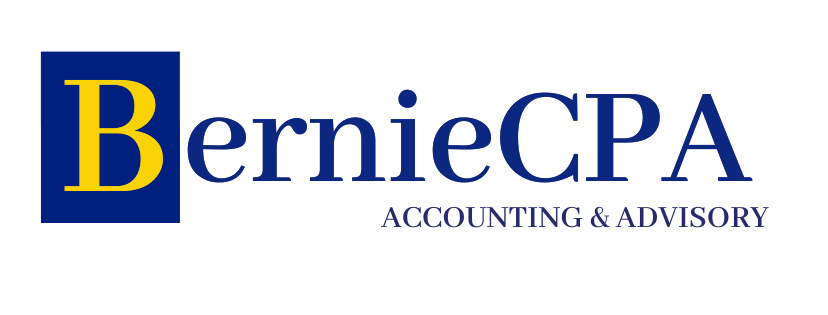The Ins and Outs of Beneficial Ownership Reporting: What You Need to Know
Beneficial ownership reporting is the process of identifying and disclosing the individuals who ultimately own or control a company or other legal entity. This information is crucial for preventing money laundering, terrorist financing, and other illicit activities. It helps to ensure transparency and accountability in the business world, as well as to protect the integrity of the financial system. Beneficial ownership reporting is a key tool in the fight against corruption and fraud, as it allows authorities to track the flow of funds and identify those who may be using complex corporate structures to conceal their true identities.
In many countries, beneficial ownership reporting is a legal requirement for certain types of entities, such as corporations, limited liability companies, and trusts. The information collected through beneficial ownership reporting is typically kept in a central registry or database, which can be accessed by law enforcement agencies, financial institutions, and other authorized parties. This allows for greater transparency and accountability in the business world, and helps to prevent the misuse of corporate structures for illegal purposes.
The Importance of Beneficial Ownership Reporting
Beneficial ownership reporting is crucial for maintaining the integrity of the financial system and preventing illicit activities such as money laundering and terrorist financing. By requiring companies to disclose their ultimate owners or controllers, beneficial ownership reporting helps to ensure transparency and accountability in the business world. This information is essential for law enforcement agencies, financial institutions, and other authorized parties to identify and track individuals who may be using complex corporate structures to conceal their true identities.
In addition to preventing illicit activities, beneficial ownership reporting also helps to promote fair competition and prevent fraud in the business world. By requiring companies to disclose their ultimate owners or controllers, beneficial ownership reporting helps to level the playing field and ensure that all businesses are operating on an equal footing. This is essential for maintaining trust and confidence in the financial system, and for protecting the interests of investors, customers, and other stakeholders.
Who is Required to Report Beneficial Ownership
The requirements for reporting beneficial ownership vary from country to country, but generally apply to certain types of legal entities, such as corporations, limited liability companies, and trusts. In many jurisdictions, these entities are required to disclose information about their ultimate owners or controllers, including their names, addresses, and other identifying information. This information is typically collected by government agencies or other authorized parties and kept in a central registry or database.
In some cases, beneficial ownership reporting may also apply to individuals who have a significant ownership interest in a company or other legal entity. For example, individuals who own more than a certain percentage of a company’s shares or voting rights may be required to disclose their ownership interests. This helps to ensure that all individuals with a significant stake in a company are identified and held accountable for their actions.
How to Report Beneficial Ownership
The process for reporting beneficial ownership varies from country to country, but generally involves collecting and disclosing information about the ultimate owners or controllers of a company or other legal entity. In many jurisdictions, this information is collected by government agencies or other authorized parties and kept in a central registry or database. Companies are typically required to provide this information when they are formed, and to update it on a regular basis.
To report beneficial ownership, companies may be required to submit forms or other documents that provide information about their ultimate owners or controllers. This information typically includes the names, addresses, and other identifying information of the individuals who ultimately own or control the company. In some cases, companies may also be required to provide additional documentation, such as copies of identification documents or other evidence of ownership or control.
Challenges and Pitfalls of Beneficial Ownership Reporting
While beneficial ownership reporting is crucial for preventing illicit activities and promoting transparency in the business world, it can also present challenges and pitfalls for companies and other legal entities. One of the main challenges is the complexity of identifying and disclosing the ultimate owners or controllers of a company. In many cases, companies may have complex ownership structures that involve multiple layers of ownership, making it difficult to determine who ultimately owns or controls the company.
Another challenge is the potential for misuse of beneficial ownership reporting requirements by individuals who seek to conceal their true identities. In some cases, individuals may use complex corporate structures or other means to hide their ownership interests in a company, making it difficult for authorities to identify and track them. This can undermine the effectiveness of beneficial ownership reporting requirements and make it easier for individuals to engage in illicit activities without being detected.
Consequences of Non-Compliance with Beneficial Ownership Reporting
Non-compliance with beneficial ownership reporting requirements can have serious consequences for companies and other legal entities. In many jurisdictions, failure to report beneficial ownership can result in fines, penalties, or other sanctions. Companies that fail to comply with beneficial ownership reporting requirements may also face reputational damage and loss of trust from investors, customers, and other stakeholders.
In addition to these consequences, non-compliance with beneficial ownership reporting requirements can also make it easier for individuals to engage in illicit activities such as money laundering and terrorist financing. By failing to disclose their ultimate owners or controllers, companies can create opportunities for individuals to use complex corporate structures to conceal their true identities and engage in illegal activities without being detected. This can undermine the integrity of the financial system and make it more difficult for authorities to prevent and investigate illicit activities.
Best Practices for Beneficial Ownership Reporting
To ensure compliance with beneficial ownership reporting requirements and prevent misuse of corporate structures for illicit activities, companies should follow best practices for reporting beneficial ownership. This includes maintaining accurate and up-to-date records of their ultimate owners or controllers, and providing this information to government agencies or other authorized parties in a timely manner. Companies should also conduct thorough due diligence on their ultimate owners or controllers to verify their identities and ensure that they are not engaged in illicit activities.
In addition to these best practices, companies should also be transparent about their ownership structures and disclose any complex arrangements that may involve multiple layers of ownership. This can help to prevent misuse of corporate structures for illicit activities and promote greater transparency and accountability in the business world. By following these best practices, companies can help to ensure compliance with beneficial ownership reporting requirements and contribute to the integrity of the financial system.


